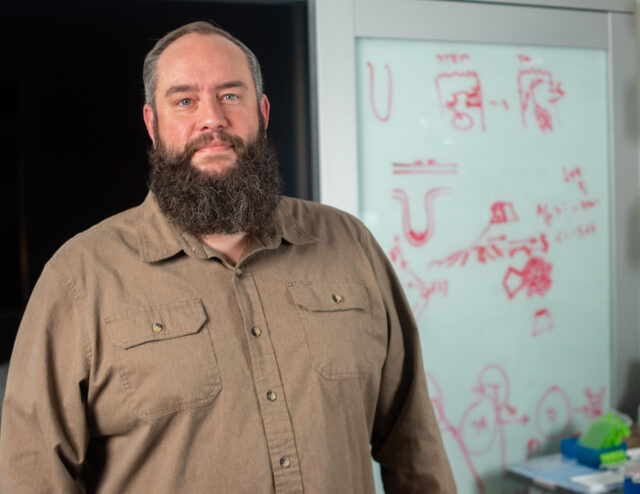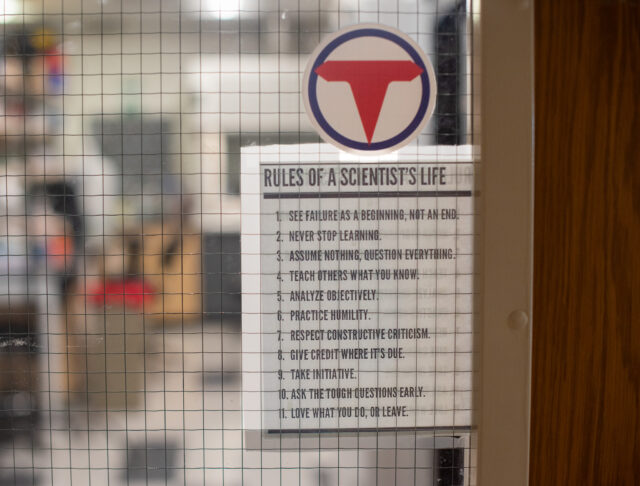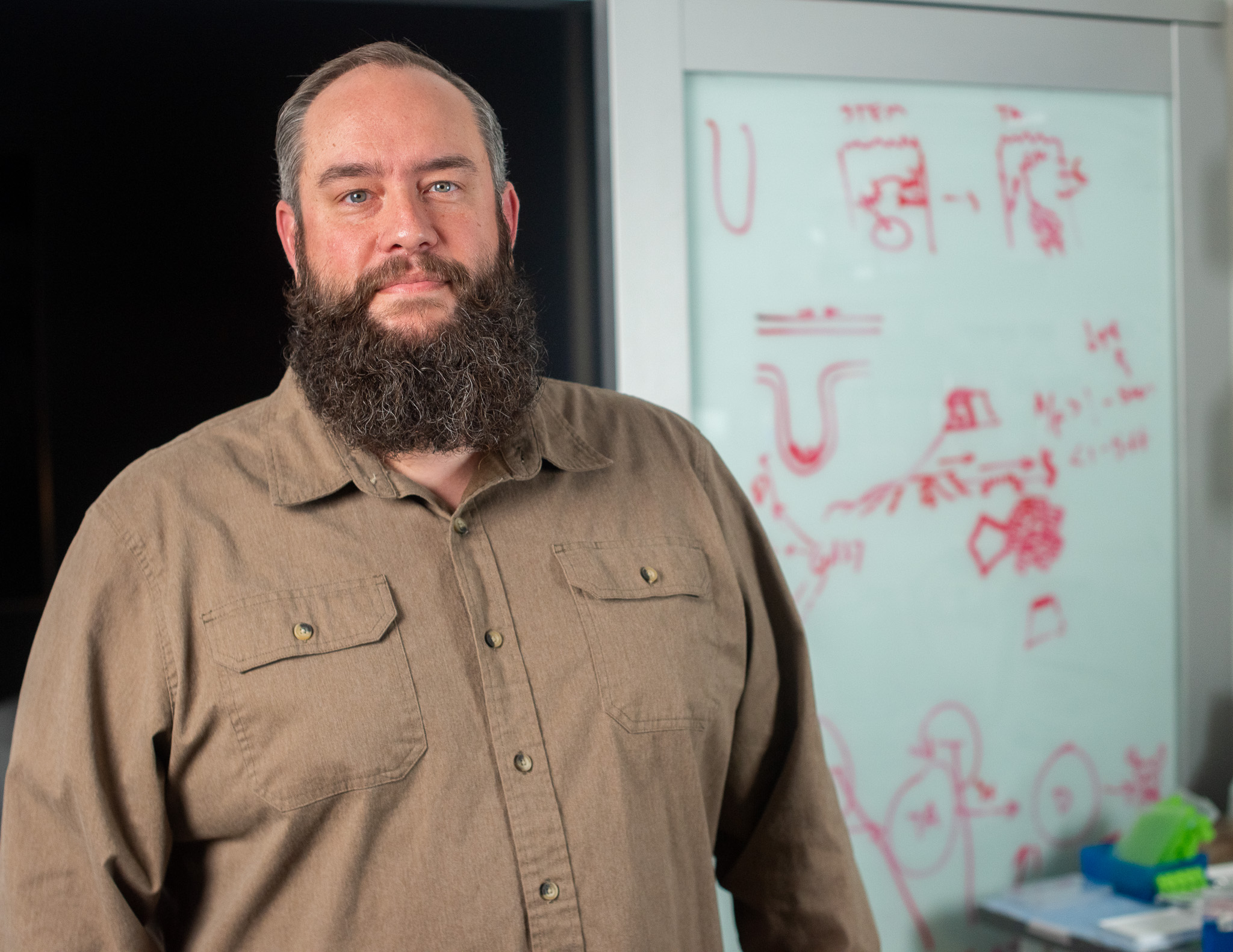|
Getting your Trinity Audio player ready... |
University of Arizona Cancer Centre awarded $13,000 for Colorectal Cancer Research
March is a busy month in terms of cancer awareness. It’s the awareness month for kidney cancer and multiple myeloma. We have already written about the lesser-known myeloma cancer in a previous article: check it out.
We’ll talk more about kidney cancer later in the month, but March is also the cancer awareness month for colorectal (bowel) cancer, so we felt it was an appropriate time to look back at a project we decided to support last year as part of our target to make 10 x £10,000 grants for our 10th anniversary. The Thorne Lab in Tucson, Arizona, USA is performing research in that field.

Curtis Thorne, Ph.D., Associate Professor in Cellular and Molecular Medicine and Director of the Graduate Program in Molecular Medicine at the University of Arizona (above), had a special and very personal reason for getting involved in cancer research, as this article explains:
https://healthsciences.arizona.edu/connect/stories/researcher-fight-against-cancer-personal
Curtis sent us a heartfelt thank-you note after the donation.
Here is the project description as submitted by the Lab when they applied for the funding (‘a little technical’ for mere mortals, be warned).
Colorectal cancer (CRC) is the third most common cancer in the western world and accounts for an incidence rate of 30.1 per 100,000 and a mortality rate of 12.1. per 100,000 cases. The 5-year survival rate for individuals within the U.S. with colorectal cancer varies depending on the stage at diagnosis, with a range from 14% for distant metastases to 91% for localized disease. Despite advances in the treatment of colorectal cancer, many patients with advanced or metastatic disease still have limited treatment options. There is a desperate need for new targets and therapies for the treatment of CRC.
Wnt signaling is essential for intestinal stem cell maintenance, and aberrant activation of this pathway drives the initiation and progression of nearly all CRCs. To date, no drugs that inhibit the Wnt pathway have been FDA-approved, partly due to the lack of druggable targets. Therapeutically targeting the Wnt pathway has been challenging because common CRC mutations (i.e., APC) lie within the gene and proteins with no obvious intervention point. Therefore, we employed an unorthodox approach by targeting the re-activation of GSK3 with small molecule allostery. GSK3 is a serine/threonine kinase protein that is involved in multiple signaling pathways, including cellular proliferation and differentiation. We previously showed suppression of GSK3 enzymatic activity can decrease sensitivity to certain chemotherapeutic and targeted therapies. Therefore, targeting GSK3 and reactivating its kinase activity can slow growth, promote differentiation, and minimize drug resistance in cancer.
To discover a novel GSK3 kinase activator, we performed a high throughput small-molecule in vitro kinase screen. During the first stage, we screened 50,000 compounds using two different but complementary kinase assays that identified 32 hit compounds. From there, we then proceeded to the second stage of the screen, where we tested the top hits in a combination of in vitro and cell-based assays to narrow further and identify our top hit – GA33. For the in vitro kinase assay, GA33 increased GSK3 kinase activity in a dose-dependent manner with a surprisingly low half-maximal activation dose (AC50) of 11.5nM. For the cell-based assay, we used immunolabeling of β-catenin, a direct substrate of GSK3, and observed a decrease in β-catenin levels in a dose-dependent manner with an AC50 of 31.1µM. Excitingly, there was no cell toxicity even at high doses of GA33, and cellular proliferation was inhibited in the RKOs. Further, we looked at Wnt/-catenin-mediated gene transcription, which showed an inhibition of tumor-promoting gene expression in response to GA33 treatment. Despite these promising results, for GA33 to advance from a hit to a true lead compound, detailed structural insights are needed to guide medicinal chemistry efforts and in vivo validation.
This proposal seeks to define the specificity and molecular mechanism of GSK3 activation by GA33. To validate GA33 specificity, we will test its ability to activate other kinases in the CMCG family. Additionally, we will collaborate with the University of Dundee to test 144 kinases across the entire kinome. In collaboration with Diana Tomchick at UT Southwestern, we will generate co-crystals of GA33 and GSK3 to define the small molecule docking sites for further mutagenesis studies. Finally, because GA33 is highly soluble, stable, and shows low toxicity, we will begin maximum tolerated dose and pharmacokinetic studies to facilitate in vivo tumor studies.

If you’d like to know more about the work the Lab is doing, you can follow them here :
Facebook
https://www.facebook.com/UAZCancer/
https://www.instagram.com/uazcancer_coe/?hl=en
LinkedIn
(Dr. Thorne) https://www.linkedin.com/in/curtis-thorne-55532011/
(University of Arizona Cancer Center) https://www.linkedin.com/company/university-of-arizona-cancer-center



